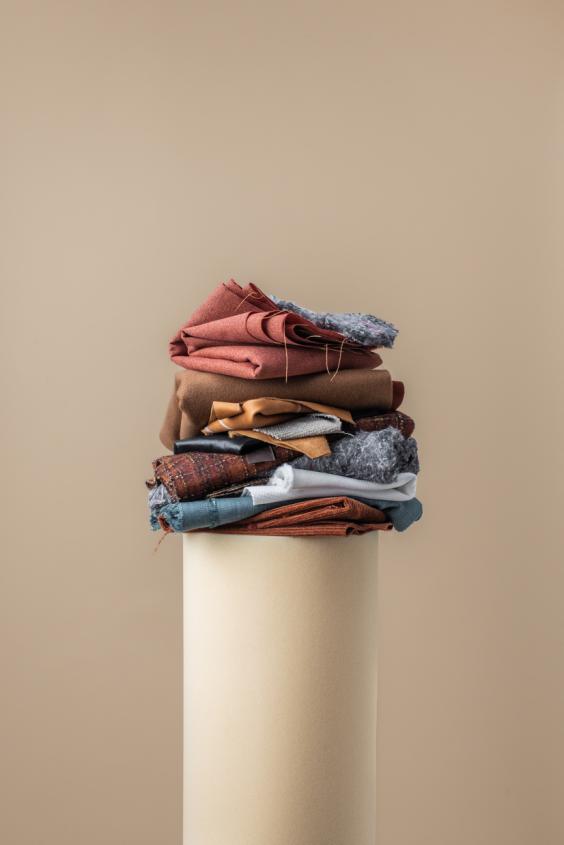A MORE SUSTAINABLE RANGE
A product can be sustainable in several different ways. We want to make it easy for you to choose materials that meet your expectations of durability. Therefore, we want to tell you briefly how our products have a better sustainability performance in different ways and facilitate your conscious choice. With the filter function, you can then easily find the products that suit you best.
All categories
> Transparency and traceability
> Locally produced
> Production with an environmental focus
> Long service life
> OEKO-TEX*
> ECO LABEL

Recycled materials
Using products that are made from recycled materials is sustainable from the perspective of resource consumption. No new resources in the form of energy, fuel, chemicals, etc. are required to produce new material. The amount of resources required for the recycling process is normally small compared to new production. In addition, recycled materials contribute positively to several other aspects of sustainability, such as biodiversity, climate impact and working conditions. Among furniture fabrics, there is a rapid development towards textiles based on recycled material. Nevotex has several product development projects together with suppliers where we produce fabrics that contain recycled material, up to 100%. So far, it is mainly about wool and polyester, which are already available today in several varieties for sale with a high proportion of recycled material.
Transparency and traceability
Locally produced

Production with an environmental focus
The environmental impact in the production of the products we sell consists, among other things, of resource consumption in the form of energy, water and raw materials. Depending on the material being manufactured, chemicals are used in different forms and amounts, for example in the form of fertilizers and pesticides. In order to reduce our environmental impact, we are looking for suppliers who use green energy in their production, reduce water consumption and offer eco-labelled products, e.g. ÖKO-TEX and Eco Label.
Long service life
Using a product for many years is probably the best for our environment, which requires high quality and timeless design. When you include all factors in a Life Cycle Analysis, longevity is an important parameter. The same applies to circular design, where longevity is singled out as the most circular design. At Nevotex, we generally work with high-quality products, but there are articles that have an extra long life depending on their constituent materials or production technology. Wear resistance and lightfastness are the parameters that govern the category.
OEKO-TEX®
Certification according to Standard 100 by OEKO-TEX means that the product does not contain levels of chemicals harmful to health, which are checked through tests carried out by textile research and testing institutes. Certification takes place for all different steps in the product such as fiber, yarn, raw fabrics, finished textiles and finished end products. In our product catalog, you can easily filter out all products that are OEKO-TEX certified.
ECO LABEL
ECO Label is the EU's certification program (equivalent to the Nordic Swan) which aims to create sustainable products based on a life cycle assessment, with a common goal of reducing the environmental impact from production processes and consumption of products. To obtain the label, the products must meet strict requirements throughout their entire life cycle. ECO LABEL is an independent third party certification program.
